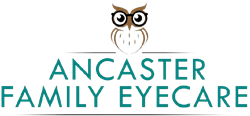
Many people think of "lazy eye" (amblyopia) as a childhood issue. But did you know that head trauma can cause similar symptoms at any age? At Ancaster Family Eyecare we specialize in helping patients recover from visual challenges related to brain injuries through neuro-optometry and vision therapy.
In Canada, approximately 165,000 people suffer a traumatic brain injury (TBI) every year, and visual dysfunctions like a lazy eye are among the most common complications. Vision problems after a concussion or head injury can greatly impact daily activities. This includes visual acuity, reading, driving, and walking safely.
How Head Injuries Affect Vision
After a head injury, the brain’s ability to control eye movements and coordination can be disrupted. This can lead to:
- Strabismus (Eye Misalignment): One eye may drift inward, outward, upward, or downward.
- Double Vision (Diplopia): Eyes not working together create overlapping images.
- Suppression: The brain may "turn off" one eye to avoid double vision, mimicking lazy eye.
- Poor Depth Perception: Difficulty judging distances, leading to balance and mobility issues.
If not treated, these problems can become permanent. They can greatly lower quality of life and affect a person's independence.
How Ancaster Family Eyecare Can Help
At Ancaster Family Eyecare, our neuro-optometry programs focus on improving how the brain and eyes work together for better eyesight and brain function long term.
Services we offer include:
- Comprehensive Neuro-Visual Exams to assess eye teaming, focusing, and tracking
- Custom Vision Therapy Programs to improve visual skills
- Prism Lenses and Therapeutic Eyewear to assist with eye alignment and comfort
- Progress Tracking and Adjustments to ensure continued improvement
Our optometrists listen to your challenges, medical history, and goals. They personalize each vision therapy and neuro-optometric program to fit your needs and recovery timeline.
Lifestyle Tips for Supporting Recovery
- Limit Screen Time: Give your eyes frequent breaks to reduce strain and employ the 20-20-20 rule.
- Prioritize Sleep: Proper rest is crucial for brain and visual system healing.
- Follow Therapy Exercises Consistently: Repetition helps rebuild neural connections.
- Stay Hydrated and Eat Nutrient-Rich Foods: Good nutrition supports overall brain health.
Regain Your Autonomy and Protect Your Eyes with Ancaster Family Eyecare
If you or a loved one is struggling with vision changes after a head injury, help is available. Trust the caring team at Ancaster Family Eyecare to guide you back to clearer, more comfortable vision.


